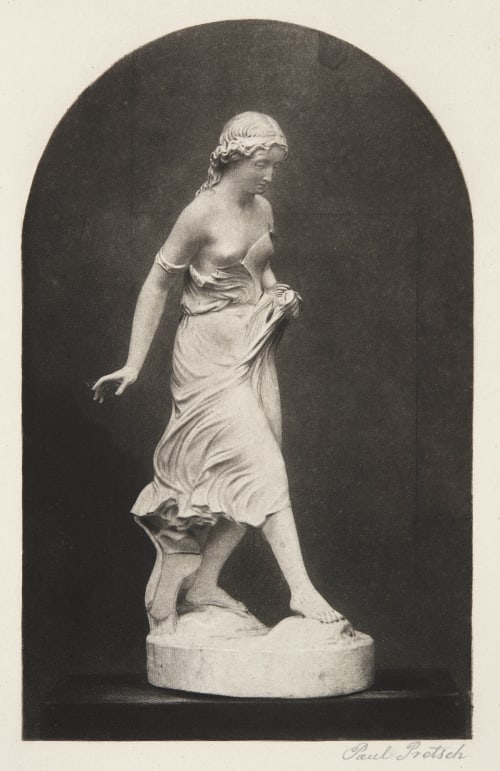
Title
Statue eines MädchenArtist
Pretsch, Paul (Austrian, 1808-1873)Date
1860 caProcess
PhotogalvanographAtelier
Paul PretschImage Size
17 x 10.7 cmSheet Size
59.7 x 44 cm
Paul Pretsch is celebrated for his pioneering contribution to the integration of photography and printing. His photomechanical process, the photogalvanograph, was one of the earliest methods to transform photographic images into a publishable form. Leveraging his invention, Pretsch, along with Roger Fenton, published the first printed portfolio of fine art photography in 1856, titled *Photographic Art Treasures*. This collection included Fenton’s and others’ photographs ‘from life,’ as well as some of the earliest ink-based photographic reproductions of paintings.
The potential for using photography to disseminate works of art was evident. Before photography, viewing a great work of art required either a journey to the artwork itself or seeing an engraving or lithograph, which offered only an ‘interpreted’ or approximate representation, often losing the artwork’s nuance.
Upon close examination, this beautiful unpublished exhibition print signed by Pretsch reveals significant hand-work on the plate. Undoubtedly produced to demonstrate that the photogalvanographic process could capture the nuanced tones of flowing fabric rendered in marble, this print illustrates that the potential to reproduce the emotive power of fine art in printer’s ink was within reach.
Reproduced / Exhibited
Albertina Inventarnummer Foto2002/36/26 https://sammlungenonline.albertina.at/#/query/ec05ebdc-8264-4cf8-a48d-b758e7a79350

